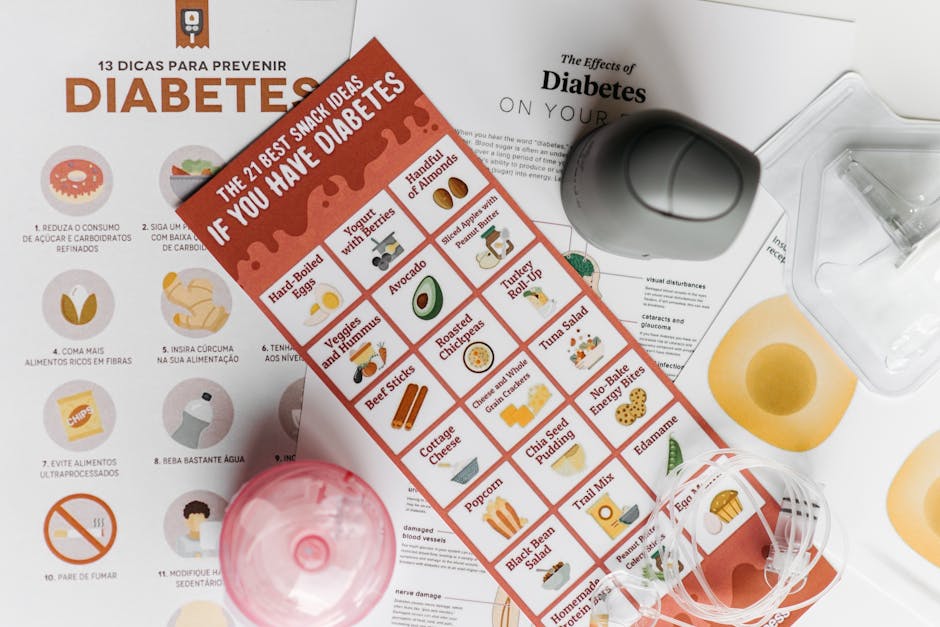Unlocking Superior Immunity: Your Ultimate Guide to Superfoods for Optimal Health
Embracing a lifestyle rich in superfoods is a cornerstone for cultivating a truly resilient immune system. These nutritional powerhouses offer a concentrated dose of vitamins, minerals, and antioxidants essential for daily immune readiness. Beyond just preventing the flu and colds, a robust immune response is critical for overall energy, vitality, and protection against a myriad of infections and chronic disease. Incorporating healthy foods like berries, leafy greens, and cruciferous vegetables into your balanced diet can significantly enhance your body's ability to fight disease and maintain optimal health. Understanding which nutrients are most beneficial and how they interact with your immune system empowers you to make informed dietary choices that promote lasting wellness.
Close-up of a vibrant assortment of fresh superfoods, including berries, nuts, and leafy greens, arranged attractively
Discovering Superfoods: A Comprehensive
Superfoods are not just a trendy term; they represent categories of foods exceptionally rich in compounds that bolster the immune system. These foods contain potent antioxidants, essential vitamins, and vital minerals that act as immune boosters. For instance, citrus fruits are renowned for their high Vitamin C content, crucial for white blood cells' function. Similarly, leafy green vegetables provide a spectrum of vitamins and minerals, including Vitamin A, C, and K, which are pivotal for maintaining a healthy immune response. The sustained consumption of these nutrient-dense foods contributes significantly to the body's natural resilience, reducing susceptibility to common ailments and supporting a more energized and vibrant life.

Illustrative chart showing various superfood categories and their primary immune-boosting nutrients and benefits
Essential
A truly healthy immune system relies on a consistent supply of essential nutrients. Vitamin C, for example, is a powerful antioxidant that supports immune cells and protects them from damage, making it a crucial component in any immune-boosting diet. Zinc, another vital mineral found in pumpkin seeds and legumes, plays a critical role in the development and function of immune cells. Beyond individual nutrients, the synergistic effect of various compounds found in whole foods amplifies their benefits. Focusing on a diverse intake of colorful fruits and vegetables ensures you receive a broad spectrum of vitamins, minerals, and phytonutrients necessary for comprehensive immunity.
Detailed diagram illustrating the role of Vitamin C and Zinc in supporting the immune system and white blood cells
Why
Prioritizing immune health through diet is paramount in today's world, where environmental stressors and pathogens constantly challenge our resilience. A weakened immune system can lead to frequent infections, prolonged recovery times, and increased vulnerability to chronic disease. By integrating healthy foods and superfoods, you are proactively fortifying your body's natural defenses. The antioxidants found in these foods combat oxidative stress, which can suppress immune function, while essential vitamins and minerals directly support the production and activity of immune cells. This strategic dietary approach fosters not just temporary immunity, but long-term health and protection.

Infographic explaining the impact of a healthy diet on immune system strength against common pathogens
Foundational
The foundation of a robust immune system is built upon consistent, nutritious eating habits rather than sporadic attempts at healthy living. A balanced diet rich in whole foods provides the continuous supply of vitamins and minerals needed for optimal immune function. Think of it as a daily maintenance plan for your internal defense system. Regular intake of foods high in Vitamin C, like oranges and bell peppers, combined with beta-carotene rich sweet potatoes, ensures that your body has the building blocks it needs to respond effectively to threats. This consistent nutritional support helps maintain a strong, responsive immune system, providing sustained resilience against illness.
Visual representation of a balanced plate featuring a variety of foundational immune-boosting foods for daily consumption
Current State of
The modern diet often falls short in providing the essential nutrients required for a truly healthy immune system. Processed foods, high in sugar and unhealthy fats, can actively suppress immune function, leaving individuals vulnerable to disease. The current state of nutritional intake highlights an urgent need for greater emphasis on whole, unprocessed foods. Studies continually show that populations consuming diets rich in plant foods, healthy fats like omega-3 fatty acids, and lean proteins exhibit stronger immunity and lower rates of chronic conditions. Addressing these dietary gaps by incorporating more superfoods is a critical step towards improving public health and individual well-being. For a deeper understanding of cutting-edge research and developments in this field, explore the detailed articles on innovative health and wellness solutions.

Graph illustrating the decline in nutritional quality of modern diets compared to traditional diets
Deep Dive into
Venturing deeper, we explore specific categories of foods and their unparalleled impact on the immune system. This section dissects the science behind various superfoods, revealing how their unique nutritional profiles translate into potent immune benefits. From the vibrant antioxidants in berries to the gut-supporting power of fermented foods, each category offers distinct advantages. Understanding these mechanisms allows for a more targeted approach to dietary choices, ensuring maximum immune support. This detailed exploration moves beyond general advice, offering actionable insights for those committed to optimizing their immune health through superior nutrition.

Macro shot of various superfoods with scientific labels highlighting their key immune-boosting compounds
Essential
Decoding the intricacies of immune-boosting nutrients reveals the powerful synergy within certain foods. Take, for instance, the combination of Vitamin C and bioflavonoids found in citrus fruits; these work together to enhance antioxidant activity and strengthen capillary walls. Similarly, the diverse array of antioxidants in berries, such as anthocyanins, not only protect cells from damage but also stimulate immune responses. By understanding how these specific vitamins, minerals, and phytochemicals interact, we can craft a diet that provides comprehensive support for a resilient immune system. This targeted nutritional understanding is key to unlocking optimal health and preventing disease.

Scientific illustration depicting the interaction of Vitamin C and bioflavonoids in enhancing immune function
Understanding
Understanding the fundamental role of key nutrients is paramount to building a truly strong immune system. For example, Vitamin D, often called the 'sunshine vitamin,' is critical for modulating immune responses and preventing excessive inflammatory reactions. Many people are deficient in Vitamin D, especially during colder months, making supplementation or dietary focus on fortified foods important. Additionally, selenium, found in Brazil nuts and seafood, acts as a powerful antioxidant, protecting immune cells from damage and supporting their proliferation. A holistic approach that addresses these essential micronutrients ensures a well-rounded and effective immune defense.

Infographic detailing the sources and benefits of Vitamin D and selenium for immune health
Key Concepts: Beta Glucan's Role in
Key to understanding comprehensive immune support is recognizing the role of unique compounds like beta glucan. Found predominantly in oats, barley, and medicinal mushrooms, beta glucan is a polysaccharide known for its powerful immunomodulatory effects. It doesn't directly kill pathogens but rather primes the immune system, making white blood cells more efficient at identifying and destroying viruses and bacteria. This natural compound enhances the activity of macrophages and natural killer cells, leading to a faster and more robust immune response. Integrating foods rich in beta glucan provides a significant boost to your body’s natural defense mechanisms, fortifying your resilience against various infections.
Microscopic view of beta glucan interacting with immune cells, showing enhanced cellular activity
Important Factors:
Beyond individual nutrients, several important factors influence how effectively your immune system functions. Chronic stress, lack of sleep, and insufficient physical activity can all suppress immunity, even with an optimal diet. Conversely, a healthy lifestyle that includes regular exercise, adequate rest, and stress management techniques works synergistically with nutrient-dense foods to enhance immune resilience. It's not just about what you eat, but how you live. A comprehensive approach that addresses all these elements creates an environment where your immune system can truly thrive, protecting you from disease and supporting overall well-being.

Visual depicting interconnected factors: healthy diet, exercise, sleep, and stress reduction, all contributing to a strong immune system
Analysis of
An in-depth analysis of superfoods reveals their intricate mechanisms for bolstering the immune system. Consider the potent anti-inflammatory and antioxidant properties of curcumin, the active compound in turmeric. It has been extensively studied for its ability to modulate immune cells and reduce systemic inflammation, which can hinder immune function. Similarly, ginger contains compounds like gingerol that possess strong antioxidant and antimicrobial properties, aiding in the fight against infections. These natural ingredients exemplify how specific plant compounds can offer significant therapeutic benefits, making them invaluable additions to an immune-boosting diet for sustaining healthy cells.
Scientific analysis chart comparing the anti-inflammatory properties of turmeric and ginger compounds
Critical Elements: How a
Critical elements for a consistently strong immune system revolve around a balanced and diverse intake of macro and micronutrients. Protein, for instance, is not just for muscles; it's essential for building and repairing immune cells and antibodies. Healthy fats, particularly omega-3 fatty acids found in oily fish and flaxseeds, play a crucial role in regulating inflammation, which is vital for an appropriate immune response. Carbohydrates, when sourced from whole grains and vegetables, provide the energy needed for immune cells to perform their functions effectively. A holistic dietary approach ensures all these elements are supplied, creating a powerful defense against infection.

Illustrative guide to the critical elements of a balanced diet supporting immune health with examples of protein, fat, and carbohydrate sources
Best Practices: Leveraging
Leveraging best practices for dietary intake means focusing on whole, unprocessed foods and minimizing artificial ingredients. Prioritizing seasonal superfoods ensures peak nutritional content and freshness. For example, during cold and flu season, emphasizing foods high in Vitamin C like oranges, butternut squash, and Brussels sprouts can provide an extra layer of protection. Cooking methods also matter; steaming or lightly sautéing vegetables helps retain their valuable vitamins and minerals. Regularly consuming a variety of colorful plant foods ensures a broad spectrum of nutrients and antioxidants, providing comprehensive support for your immune system. For inspiration and to follow exciting sporting events, check out latest news and updates which often highlights the peak physical condition of athletes who prioritize such nutrition.
Diagram showcasing best practices for food preparation and selection to maximize nutrient retention and immune benefits
Why
The realm of nutrition is constantly evolving, with revolutionary findings continually shaping our understanding of immune health. Advanced research is uncovering previously unrecognized compounds in everyday foods that offer extraordinary benefits for the immune system. For instance, the synergistic effect of various polyphenols in berries is far more potent than isolated compounds, demonstrating the power of whole foods. This section delves into these cutting-edge insights, offering a glimpse into the future of immune-boosting nutrition and how these discoveries can be integrated into your daily routine. Staying informed about these developments allows for a proactive and highly effective approach to bolstering your body's defenses.

Futuristic infographic depicting revolutionary nutritional discoveries and their impact on human immune function
Implementation Guide: How to
Implementing an immune-boosting diet doesn't have to be daunting. Start by gradually incorporating more immune-boosting foods into your meals. Begin with simple swaps, like replacing sugary snacks with antioxidant-rich berries or adding more leafy green vegetables to your dinner. Meal planning can be an invaluable tool to ensure consistent intake of nutrient-dense foods. Focus on variety to ensure you receive a broad spectrum of vitamins, minerals, and antioxidants. Remember, consistency is key to building a strong immune system over time. Small, sustainable changes will yield significant long-term benefits for your overall health and well-being.

Step-by-step guide illustrating practical ways to incorporate superfoods into daily meal planning
Step-by-Step Process: Integrating
Integrating immune-boosting ingredients into your daily diet follows a clear step-by-step process for maximum effect. First, identify your current dietary gaps; are you lacking sufficient Vitamin C, or perhaps healthy fats like those in avocados? Next, select a few new superfoods to introduce each week, ensuring they are diverse in nutritional content. For example, start with adding a handful of blueberries to your breakfast, then incorporate spinach into your lunch. Gradually build up your repertoire of nutritious foods. Finally, track your progress and how you feel, noting increased energy levels and reduced frequency of illness. This methodical approach ensures lasting dietary change and improved immunity.
Flowchart detailing a step-by-step process for successfully integrating immune-boosting superfoods into a daily diet
Common Challenges: Overcoming
Overcoming common challenges in adopting an immune-boosting diet often involves addressing taste preferences and budget constraints. Many perceive healthy foods as bland or expensive. However, by experimenting with different spices, cooking methods, and affordable seasonal produce, you can create delicious and cost-effective meals. Batch cooking and meal prepping can save both time and money. Another challenge is the sheer volume of conflicting nutritional information; focusing on whole, unprocessed foods and expert dietary guidelines can help navigate this. Remember that investing in your health through nutritious foods is an investment in your future well-being and a resilient immune system.
Illustrated solutions for common challenges in maintaining an immune-boosting diet, such as budget-friendly tips and diverse recipe ideas
Advanced Techniques: Expert Strategies for a Game-Changing
For those seeking to elevate their immune health, advanced techniques involve optimizing nutrient absorption and understanding specific dietary interactions. This includes practices like fermenting foods to enhance probiotic content, which directly supports gut health—a cornerstone of the immune system. Considering nutrient timing, such as consuming Vitamin C-rich foods alongside iron-rich foods to enhance iron absorption, can also be beneficial. Exploring lesser-known superfoods like adaptogenic mushrooms can provide additional immune modulation. These strategies move beyond basic nutrition, offering a game-changing approach to sustaining a truly robust and responsive immune system through specific dietary protocols.
Complex infographic showcasing advanced nutritional strategies like fermentation and nutrient timing for superior immune support
Expert Tips: Tailoring
Tailoring an immune-boosting diet requires understanding your individual needs and potential sensitivities. Consulting with a nutritionist can provide personalized dietary guidelines that account for your unique biology and lifestyle. For example, individuals with specific chronic conditions might benefit from particular anti-inflammatory foods. Monitoring your body's response to different foods helps fine-tune your diet for optimal results. It's about creating a sustainable and enjoyable eating pattern that consistently fuels your immune system and overall well-being. This personalized approach ensures your diet is not only effective but also aligned with your personal health goals.

Image of an expert nutritionist providing personalized dietary advice and meal plans
Optimization Strategies: Maximizing
Maximizing the impact of your immune-boosting diet involves smart grocery shopping and meal preparation. Focus on buying organic produce when possible to minimize pesticide exposure, which can stress the immune system. Incorporate a variety of colors into your plate to ensure a broad spectrum of antioxidants. Additionally, consider how certain foods interact; for instance, the absorption of fat-soluble vitamins (A, D, E, K) found in leafy green vegetables is enhanced when consumed with healthy fats like those in olive oil or avocados. These optimization strategies ensure you're getting the most nutritional value from every meal, supporting a powerful immune system. To see how top athletes optimize their performance, check out exclusive behind-the-scenes content, which often features their dietary routines.
Visual guide to grocery shopping and meal prep for maximizing nutrient intake and immune benefits
Foundational
The future of immune health is intrinsically linked to ongoing scientific advancements and a deeper understanding of the human microbiome. Research continues to uncover the profound connection between gut bacteria and the immune system, emphasizing the importance of probiotics and prebiotics in dietary strategies. Personalized nutrition, guided by genetic insights, is also on the horizon, promising tailored dietary recommendations for individual immune optimization. As we move forward, the emphasis will increasingly be on preventive health through targeted nutrition, making superfoods an even more critical component of sustaining a robust immune system against emerging threats.

Conceptual image depicting the future of personalized nutrition and microbiome-based immune health
Case Studies: Real-world Examples of
Real-world examples powerfully demonstrate the efficacy of superfoods in boosting the immune system. Consider case studies of communities in regions known for longevity, often characterized by diets rich in plant foods, fermented foods, and minimal processed ingredients. These populations typically exhibit lower incidences of chronic disease and stronger immunity. For instance, the Mediterranean diet, abundant in fruits, vegetables, whole grains, and healthy fats, has consistently been linked to reduced inflammation and enhanced immune function. These real-world observations provide compelling evidence for the profound impact of dietary choices on long-term immune health and disease prevention.

Map highlighting regions with high longevity and corresponding dietary patterns rich in immune-boosting superfoods
Success Stories:
Numerous success stories highlight individuals who have transformed their health by embracing an immune-focused diet. From reducing the frequency of flu and colds to managing autoimmune conditions, the power of nutritious foods is undeniable. For example, some individuals report significantly increased energy and resilience after consistently incorporating a variety of fruits, vegetables, and whole grains. These personal anecdotes, while not clinical trials, underscore the practical benefits of dietary changes. They serve as inspiring testaments to how a commitment to superfoods can lead to a more energized, disease-resistant, and overall healthy lifestyle.

Collage of testimonials and before-and-after images of individuals who improved their health through an immune-boosting diet
Lessons Learned: Addressing
Lessons learned from these case studies and individual experiences emphasize the importance of consistency, diversity, and an individualized approach to nutrition. Generic dietary advice often falls short; understanding specific nutrient needs and food sensitivities is crucial. Addressing underlying issues like stress and sleep deprivation, alongside dietary changes, yields the best results. Moreover, the cultural integration of healthy eating patterns, where nutritious foods are not just sustenance but a part of a lifestyle, proves most effective. These insights guide us towards more holistic and effective strategies for bolstering the immune system and promoting lasting health.

Infographic summarizing key lessons learned from successful immune health dietary interventions
Future Trends: What's Next for
Looking ahead, the future of immune support through nutrition will likely involve more personalized and technologically driven approaches. Genetic testing could soon provide bespoke dietary recommendations, identifying which specific foods and nutrients offer the most benefit for an individual's unique immune system. The exploration of novel superfoods from biodiversity hotspots, coupled with advancements in food science, will introduce new immune boosters. Furthermore, the integration of AI and wearable tech will enable real-time tracking of physiological responses to diet, allowing for dynamic adjustments to maximize immunity and overall well-being.
Futuristic interface displaying personalized dietary recommendations based on genetic and real-time biometric data
Emerging Developments:
Emerging developments in nutritional science are continuously revealing new ways to optimize the immune system. Research into epigenetics, for example, is uncovering how specific nutrients can influence gene expression, impacting immune function without altering the DNA sequence itself. The study of exosome-mediated communication from plant foods to human cells is another fascinating area, suggesting direct cellular interaction. These cutting-edge discoveries highlight the untapped potential of dietary interventions, moving beyond basic vitamin and mineral intake to a more profound understanding of food as a powerful tool for immune modulation and disease prevention.
Scientific illustration depicting epigenetic modifications and exosome interactions influenced by dietary nutrients
Predictions: The Role of
Predictions for the role of superfoods in future immunity center on their indispensable contribution to preventing chronic disease and enhancing resilience against novel pathogens. As global health challenges evolve, the emphasis on a strong, adaptive immune system will intensify. Superfoods, with their rich array of protective compounds, will form the backbone of public health initiatives and personalized wellness plans. We anticipate a greater integration of these foods into mainstream dietary guidelines, moving away from reactive treatments towards proactive nutritional strategies. This shift will solidify superfoods' position as essential components for a healthy, future-ready immune system.

Visionary artwork depicting a healthy society thriving on superfood-rich diets, resilient against future health threats
Sustaining a Robust
Sustaining a robust immune system is an ongoing commitment, not a one-time effort. It requires consistent attention to diet, lifestyle, and emotional well-being. The powerful benefits derived from a consistent intake of superfoods and nutrient-dense options like a variety of vitamins and minerals are amplified when paired with adequate sleep, regular physical activity, and effective stress management. Remember, your immune system is a dynamic entity, constantly adapting and responding to internal and external cues. By prioritizing holistic health practices, you equip your body with the resilience needed to fend off disease and maintain optimal function for years to come.

Image showing various pillars of a healthy lifestyle – diet, exercise, sleep, and mindfulness – supporting a strong immune system
Why
Reflecting on your dietary choices and their impact on your immune system is a crucial step in fostering lasting health. Take a moment to assess how regularly you incorporate immune-boosting foods like Vitamin C-rich fruits, leafy greens, and probiotic-rich options. Consider any patterns where poor dietary choices coincided with illness, and conversely, how consistent healthy eating contributes to feeling energized and resilient. This self-assessment helps to identify areas for improvement and reinforces the positive connection between nutrition and immunity. Every meal is an opportunity to nourish and fortify your body's natural defenses, moving you closer to superior immune health.

Person reflecting on a balanced plate of food, symbolizing thoughtful dietary choices and their health impact
Foundational
Empowering your health through a superfood-rich diet is one of the most proactive and impactful steps you can take for your immune system. By consistently choosing nutrient-dense foods, you're not just eating; you're building a formidable internal defense. Remember that a strong immune system is your best ally against viruses, bacteria, and other pathogens. The journey to optimal immunity is continuous, filled with learning and adapting. Embrace the power of nutritious foods, make them a cornerstone of your daily routine, and enjoy the countless health benefits—from increased energy to enhanced disease resilience—that follow.

Vibrant image of a healthy individual enjoying an outdoor activity, symbolizing empowerment and vitality from a strong immune system
Current State of
Your personal journey to a robust immune system begins with conscious choices today. Every meal, every snack, presents an opportunity to nourish your body with the vitamins, minerals, and antioxidants it needs to thrive. Prioritize whole, unprocessed superfoods, listen to your body's signals, and seek out diverse sources of immune-boosting nutrients. This proactive approach not only strengthens your immunity but also contributes to overall well-being, enhancing your physical and mental energy. Take ownership of your health by committing to these dietary principles, and watch as your resilience against illness grows stronger with each healthy decision.
Hands planting a small, vibrant plant in fertile soil, symbolizing the nurturing of one's immune system
Continuing Your Wellness Path: Essential Resources for Optimal
Continuing your wellness path requires access to reliable resources and ongoing education. Explore reputable health websites, peer-reviewed scientific journals, and certified nutritionists to stay informed about the latest advancements in immune health. Consider joining online communities or local workshops focused on healthy eating and superfoods to gain practical tips and motivation. Regularly reviewing and updating your knowledge ensures your dietary strategies remain effective and aligned with the most current scientific understanding. Arming yourself with information is crucial for maintaining a truly optimal and resilient immune system throughout your life.

Open book with a healthy meal on a table, symbolizing continuous learning and application of knowledge for wellness
First Major Topic: Decoding
For further exploration into specific aspects of immune health and nutrition, delve into specialized topics such as the gut-brain axis, the role of specific prebiotics and probiotics, or advanced immunotherapy insights for conditions like cancer. Understanding these interconnected systems can provide a deeper appreciation for the holistic nature of immunity. Resources from organizations like the National Institutes of Health or trusted medical institutions offer evidence-based information to expand your knowledge. Navigating these deeper dives equips you with comprehensive understanding, allowing you to make even more informed decisions for your immune system and overall vitality.
Complex diagram illustrating the gut-brain axis and its connection to the immune system and overall health













